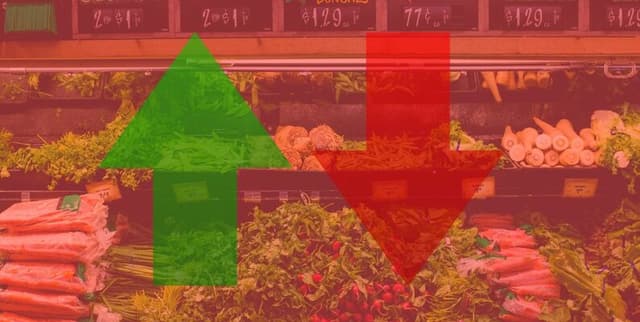Product Flow Management Dataset
Retail & Consumer Behavior
Tags and Keywords
Trusted By




"No reviews yet"
Free
About
This dataset offers a detailed view of grocery inventory and sales, designed for managing grocery store operations. It includes information for 990 products across various categories such as Grains & Pulses, Beverages, and Fruits & Vegetables. Each product is documented with its unique identifier, name, category, and supplier details. The dataset is particularly valuable for businesses aiming to optimise inventory management, track sales, and enhance supply chain efficiency. It can be used to refine reorder strategies, identify high-demand products, evaluate supplier performance, and support predictive analytics to forecast demand and streamline stock replenishment. The data is fictional and provided for educational and demonstration purposes.
Columns
- Product_ID: A unique identifier for each product.
- Product_Name: The name of the grocery product.
- Category: The classification of the product, such as 'Fruits & Vegetables' or 'Dairy'.
- Supplier_ID: A unique identifier for the product's supplier.
- Supplier_Name: The name of the supplier.
- Stock_Quantity: The current quantity of the product held in stock.
- Reorder_Level: The stock level at which a product should be reordered.
- Reorder_Quantity: The quantity of stock to order when the reorder level is met.
- Unit_Price: The price per unit of the product.
- Date_Received: The date when the product was received into the warehouse.
- Last_Order_Date: The date of the most recent order placed for the product.
- Expiration_Date: The date on which perishable goods expire, crucial for managing shelf life.
- Warehouse_Location: The specific storage location of the product within the warehouse.
- Sales_Volume: The total number of units of the product sold.
- Inventory_Turnover_Rate: A metric indicating how quickly a product sells and is restocked.
- Status: The current status of the product (e.g., 'Active', 'Discontinued', 'Backordered').
- Percentage: A percentage value related to product data, further details not specified.
Distribution
The dataset is typically provided in a CSV file format, with a sample file named
Grocery_Inventory new v1.csv being approximately 141.51 kB. It contains 990 individual product records or rows and comprises 17 distinct columns.Usage
This dataset is ideal for:
- Inventory Management Optimisation: Refining reorder strategies to maintain optimal stock levels, preventing stockouts or excessive inventory.
- Sales Performance Evaluation: Identifying high-demand products and slow-moving items to inform pricing and promotional decisions.
- Supply Chain Efficiency: Evaluating suppliers based on performance, pricing, and delivery to streamline procurement.
- Product Lifecycle Tracking: Monitoring product status, from receipt to expiration or discontinuation.
- Predictive Analytics: Employing machine learning to estimate reorder quantities, forecast demand, and optimise stock replenishment.
- Marketing and Distribution Strategy Refinement: Tracking sales trends to improve strategies and ensure profitability.
- Educational and Demonstration Purposes: A versatile resource for learning and showcasing inventory management and sales analysis principles.
Coverage
The dataset's time range for dates such as
Date_Received, Last_Order_Date, and Expiration_Date spans from 25th February 2024 to 24th February 2025. Geographic and demographic scopes are not explicitly defined, implying a general grocery store operational context. The data is fictional and includes real-world inventory dynamics, such as products marked as discontinued or backordered. Businesses are advised to monitor expiration and last order dates for perishable goods to minimise waste.License
Creative Commons Attribution 4.0 International License
Who Can Use It
- Grocery Store Managers: To optimise stock levels, manage reorders, and track product movement.
- Supply Chain Analysts: For evaluating supplier performance and streamlining procurement processes.
- Sales and Marketing Teams: To identify popular products, understand sales trends, and refine promotional activities.
- Data Scientists and Analysts: For developing predictive models for demand forecasting and inventory optimisation.
- Educators and Students: As a practical, fictional dataset for learning and demonstrating data analytics concepts in retail.
- Business Strategists: For making data-driven decisions to enhance operational efficiency and profitability.
Dataset Name Suggestions
- Grocery Stock & Sales Data
- Retail Inventory Analytics
- Product Flow Management Dataset
- Grocery Operations Data
- Fictional Store Data
Attributes
Original Data Source: Product Flow Management Dataset
Loading...
